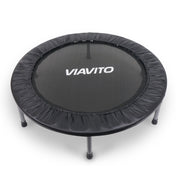Protein is a key part of a balanced diet. But there is a lot of confusion around which types, and how much we need to be healthy.
High protein diets have grown in popularity, as have the endless selection of protein packed health snacks, drinks and powders which are marketed to the health-conscious consumer.
But, do we really need protein powder? And is it impossible to get enough protein on a vegan diet?
Find out the answers below.
What is protein and why do we need it?
Protein is a fundamental component of our biology; when broken down via digestion, we end up with a selection of amino acids- the building blocks the body uses to make up the specific proteins it needs for growth, repair, and many cellular activities.
What does protein do for us? Here are just a few examples:
- Makes up our hair, nails, and muscles
- Gives structure to our organs
- Supports immune processes
- Make hormones and enzymes
Top five protein myths:
1. Protein powder helps us lose weight
For those of you who are super active, protein powder post workout can help to replenish your stores in order to promote muscle hypertrophy (growth). Whilst most people with a reasonably active lifestyle can get enough protein through diet alone, if you are training for multiple hours a day and struggle to consume enough protein at mealtimes, a protein shake can be an asset to your repair and recovery.
However, for most people, who do 1 hour or less intense exercise a day- the consumption of protein shakes can have a negative impact on your weight gain. This is because protein powders are insulinogenic- this means they promote insulin production. As you are probably aware, insulin is usually produced in response to carbohydrate intake and can promote weight gain. So, unless you are very active, protein shakes may not be the best approach to weight control.
2. Vegans can’t get enough protein
This is a commonly held viewpoint- often used to question vegans on the nutritional adequacy of their dietary choices. But it is entirely possible to get enough protein on a vegan diet, as long as it is carefully planned and balanced. If you are new to a plant-based way of eating it can be easy to get overwhelmed with what constitutes protein, and consequently some people may overeat carbohydrates/ fats without getting enough high-quality protein intake. But vegans can find protein in the following places:
- Quinoa
- Tempeh
- Tofu
- Seitan
- Beans
- Nuts
- Seeds
- Pulses/ legumes
So, as you can see, it is entirely possible to get enough different types of protein- just remember to mix and match so you get the full range of amino acids you need (see Myth 5 for more detail)
3. High protein diets are necessary to lose weight
A lot of diet protocols focus on high protein low fat options. At first glance, this seems like a sound option, as it naturally reduces the amount of carbs you consume, which can improve metabolic health, lower insulin, and reduce weight gain.
But excessively high protein intake does also trigger insulin release, can strain the kidneys, and may not be sufficiently high in essential fatty acids. Weight loss does not always require extreme macronutrient alterations, it’s perfectly possible to lose weight in a sustainable way via a mild caloric deficit, and a diet comprised of a moderate intake of protein, fats and carbs.
4. ‘High protein’ snacks must be healthy
In line with the increased awareness of the need for protein in a healthy diet- many snack food manufacturers have jumped on the bandwagon- promoting their products as high protein options, in a bid to lure in the health conscious snacker.
But it is worth looking beyond the label, as, many snacks promoted in this way may also still be high in sugars, unhealthy fats and other processed additives which do not render them a healthy option. Luckily, there are plenty of naturally healthy high protein options, such as nuts, fish and yoghurt.
5. Eating the same protein every day is fine
Different protein sources provide different amino acid profiles, so ideally, we want to get a good variety of proteins into our diet. This is especially important if you eat predominantly plant-based proteins, as whilst these can be naturally high in proteins, they don’t all have the full range of essential amino acids. This is why, if we get stuck eating only one or two main protein types, i.e., beans or nuts, we might miss out on all the amino acids we need for health. But, by mixing and matching, and combining proteins across meals we can get everything we need.
Key takeaways:
- Protein is essential for health, as it is involved in many different physiological function
- Sufficient protein can usually be obtained from your diet, unless you are very active- when protein powder can be an option
- You can get enough protein on a vegan diet, but you need to mix and match your sources to ensure you get all the amino acids you need to be well
- Having a high protein diet is not necessary for weight loss, and in some instances can be harmful.
The bibliography:
1 Hruby A, Jacques PF. Protein Intake and Human Health: Implications of Units of Protein Intake. Adv Nutr. 2021. doi:10.1093/advances/nmaa097
2 Shang N, Chaplot S, Wu J. Food proteins for health and nutrition. In: Proteins in Food Processing: Second Edition. ; 2018. doi:10.1016/B978-0-08-100722-8.00013-9

